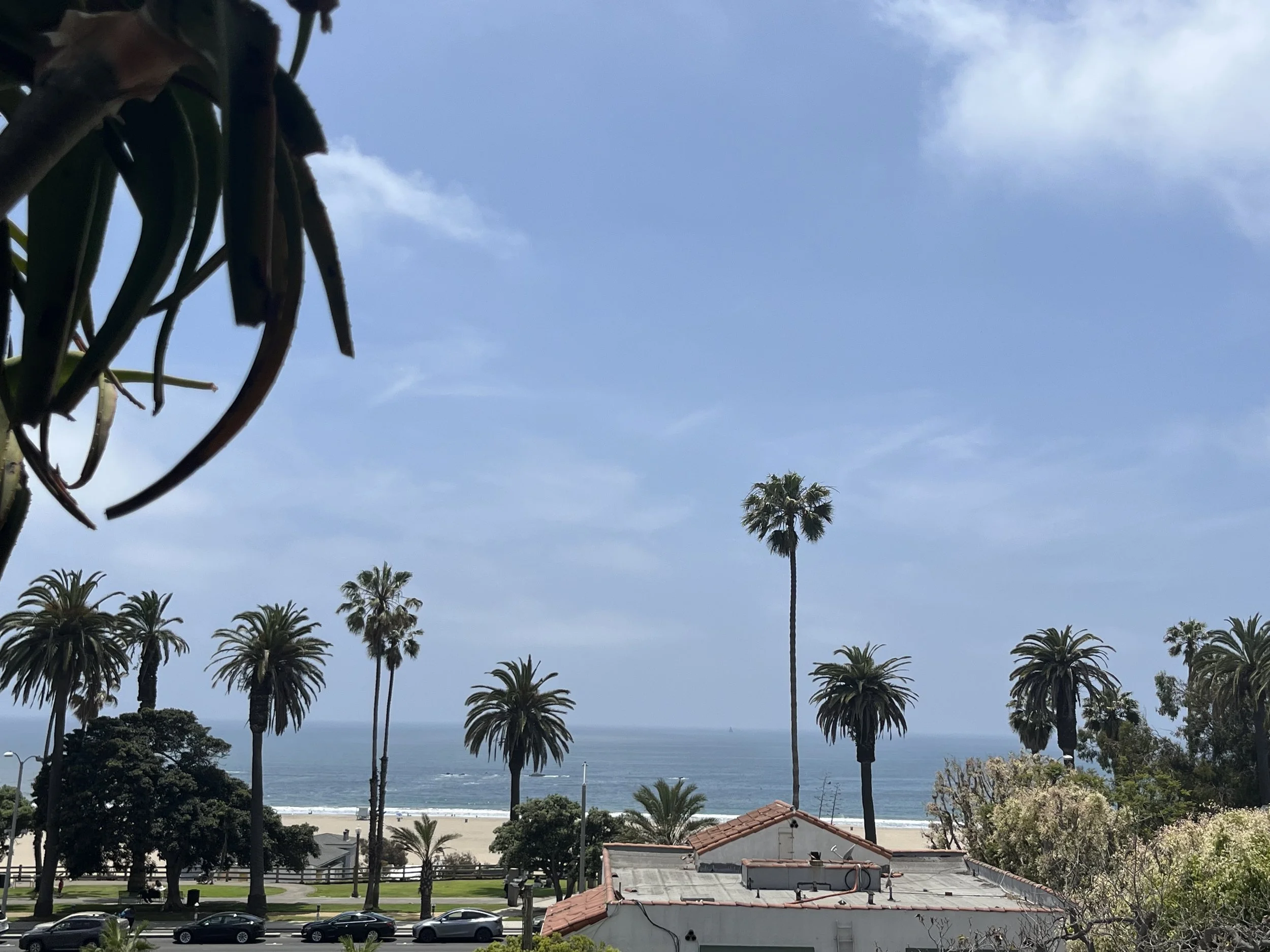
Your Counsel, from Mind to Medium.
Faussett Media Law is a law firm providing representation to filmmakers, production companies, on-camera talent and all other manner of creators. From an idea’s conception through its distribution and derivatives, Faussett Media Law helps provide commercial certainty for your art.

PRACTICE AREAS
Entertainment and Media Advisory Services
BUSINESS & LEGAL AFFAIRS
Dealmaking and advisory services
INTELLECTUAL PROPERTY & DEVELOPMENT
Copyright, chain of title and collaboration agreements
PRODUCTION LEGAL & DISTRIBUTION
Transactional services from development through distribution and derivatives
CONTENT REVIEW
Pre-broadcast legal review, E&O coverage and fair use
Frequently Asked Questions.
-
As an entertainment attorney, I am experienced in a wide array of media matters. As a brief overview, here is a kind of menu for matters I handle:
Television, new media and motion picture development and production work;
Business and legal affairs matters;
Intellectual property transactions (e.g., life rights, personal rights matters, brand licensing, etc.);
Individual services agreements (e.g., director, writer, on-camera, showrunner and executive producer agreements);
Content review (including pre-broadcast review for defamation and related matters);
Literary publishing agreements;
Production services agreements, network financing and distribution agreements;
Format licensing;
Game show and competition show compliance matters (e.g., contestant agreements, series rules, contestant diligence, etc.);
Sponsored content, branded content and influencer agreements;
Clearances and licensing (typically in cooperation with music supervisors, clearance coordinators, archival producers and other dedicated production professionals);
Fair use (typically in conjunction with specialty outside counsel);
Entertainment immigration (typically in conjunction with specialty outside counsel);
Chain of title and rights analyses;
Copyright review and registration matters;
Title search and clearance (typically in conjunction with specialty outside counsel);
And the list continues to widen as the industry evolves.
-
This question is ageism in disguise, but it’s an important question so I don’t mind.
I have been barred (licensed to practice) in California since 2013, so twelve years as of press time (2025 C.E.).
I have focused on entertainment transactional law for the entirety of that time (with many internships and work placements at entertainment firms and studios dating back to 2007).
One of the more rewarding aspects of staying in this field year-over-year is to see the cycles of the market (gamechanging litigation, labor disputes, zeitgeist shifts, the emergence and destruction of new business models)—all part of the entertainment business’ never ending samsara.
-
To figure out if we should work together, I typically schedule a phone consultation.
Once I better understand your needs for a given matter, we would then discuss a fee arrangement based on our shared understanding of the scope of the work and action items.
From there, I’d send a representation agreement for your review and I would commence work on a given matter once we’re in agreement about the overall arrangement.
In this scenario, I’m now your entertainment lawyer and you can bring me new matters on a rolling basis as they arise.
-
Every matter and client is a little bit different, so your fee arrangement would get figured out based on your needs.
For most individual clients, I work for the standard 5% of what you would get paid on a particular deal that I handle.
To ensure my services are available to a wide array of clients, I also offer an hourly rate ($550, reducible in special cases).
For production legal (where I handle all the legal on a show that’s funded), my fee is the customary legal line in the show’s budget (this is typically set at 1.5% of the project’s budget).
And then there are scenarios where a flat fee might be more appropriate.
All of this to say that I’m flexible, and the fee arrangement would be agreed upon between us before I start the work.
-
An increasingly relevant question, as I’ve advised creator clients and studios alike on matters related to the outputs of Large Language Models (LLMs) and other generative AI systems.
For my ownwork product, I am ethically opposed to the use of AI generated materials in my legal practice. Legal research, drafting and other services I provide are done personally, and any work product that relies on AI generated outputs should be disclosed to the client.
There are mundane exceptions to this position. For example, I let Gmail prompt me to follow up on emails I sent a few days ago, and I let it auto populate my calendar with items it finds in my email (both of these features utilize rudimentary machine learning). In drafting, I will also let Microsoft Word automatically compare a draft agreement against a prior version to show me changes (this mechanical comparison has been available since 2007). These are small efficiency gains, but in my view do not cross a critical, ethical threshold of letting a tool think for me or passing off automated work as my own.
Otherwise, I am a staunch defender of humanism in all things (work, leisure, life). I do all of my writing, legal work and curation by hand. This position will matter a great deal to some people, and not at all to others.
This stance about my professional work does not extend to my clients and their businesses uniformly.
In the entertainment industry today, AI-generated content already has proper use cases (e.g., achieving certain effects in post-production, the pre-visualization of story materials, and a litany of other yet-to-be-realized expressive/experimental uses).
As someone who represents creators and tries to bring commercial certainty to their art, I am generally opposed to frivolous AI uses that replace the vocations and livelihoods of my clients.
As an industry, we have choices about what we value, and I choose the side that values human creativity. This position is equally supported by the current guidance from the United States Copyright Office (only human outputs are eligible for protection) and in the positions of many major labor organization (SAG, WGA, etc.).
My stance on this issue isn’t for everyone and it means losing business sometimes, but it’s an essential and foundational tenet of my practice. Advocacy for my clients also means opposing the tools that would seek to systematically replace them.
-
I’m flattered, but also very glad that you're asking, as dealmaking philosophy and attorney-client fit matter for a successful outcome.
One of the near-requirements of my profession is zealous advocacy (State Bar rules don’t mention it, but plenty of case law has established the baseline).
I’m incredibly passionate about helping artists navigate a content system that is increasingly automated, dehumanizing, and frequently fails to compensate people for the fruits of their labor. I generally find the deck to be stacked against creators, and try to press for advantages in line with a client’s goals wherever possible.
While I do some work for studios and networks occasionally, the bulk of my clients are individual and production company creators, the people who come up with, make and sell stories (or, if we must use the word, “content”).
For me, zealous advocacy for these clients means getting the best deal possible, but always with an eye on how we can improve and continue to build for the next deal.
In this way, I build my career alongside my clients and I remain invested in their ongoing success. There are attorneys in my space who like to go scorched earth on each deal, heedless of what follows. This is decidedly not my approach.
It’s a small ecosystem at the end of the day, and everyone benefits when the parties take that into account.
There is no dealmaking karma and you have to firmly insist on what you deserve on a particular deal, but how something is done is important in my view.
I’m a collaborator and a deal maker. I want to see art get made, not win an academic argument, point to a scoreboard to see how I’m doing in the speech and debate society, or look at how many hours I can bill for a given matter.
An attorney can be results-oriented and pragmatic at the same time for their clients. More than ever, I think civility and decorum matter.
That approach is not for everyone, but it’s certainly helped ensure compatibility with and satisfaction from my current roster of clients.
-
Copyright law in the United States observes something popularly known as the “idea/expression dichotomy.” In other words, an idea for something is not protectable on its own, but it becomes protectable once it is expressed (that is, fixed in a tangible medium). If you have an idea for a program, then how it is packaged (who is attached to work on it) and how it is expressed (the content of the work) are primary considerations for getting it made.
Typically, the idea for an audiovisual work is presented to potential financiers, distributors, etc. through development materials, a kind of visual and written guide to what someone could expect from the finished program.
Anecdotally, I think it’s quite important to have agreements among collaborators in order before a potential work is presented to buyers—it’s harder to agree on roles, responsibilities and remuneration once money is on the table, even if the parties all have the best of intentions.
-
Copyright laws in the United States do not require registration in order for an author to hold a copyright in their work.
Instead, copyright in a particular work for an author arises at the time the work is created (i.e., when it is fixed in a tangible medium).
That said, there are benefits to registering an author’s work with the Copyright Office. Chief among them, registration allows an author to demonstrate when they created a particular work, and allows an author to pursue infringers (real and imagined).
-
One of the basic principles of copyright is to reserve the right to make copies (or derivatives) of a work to the author.
This generally means you need the permission of an author to include their work in your project.
That said, copyright law in the United States allows authors to use the works of others in a project pursuant to the principles of fair use. Fair use is not a license to use something, but rather a defense against a claim that a use is infringing on the original author’s rights.
So do you need permission to use a particular piece of work in your project? Context is everything, so it depends.
-
In my view, an important question is “why hire you in particular?”
The world is full of entertainment lawyers, and many of them are equally skilled and passionate about what they do.
I think it comes down to preferences.
If the skillsets of entertainment lawyers are more or less interchangeable, then how do you like to do business and what kind of attorney do you want on your team?
I make it a point to understand my client’s concerns and let those drive the representation. For my part, I also do my level best to bring a llittle bit of panache to the proceedings.

FROM THE DESK OF FAUSSETT MEDIA LAW
News + Insights.
Want news and insights from the desk of Faussett Media Law? Sign up below to hear from us occasionally.




